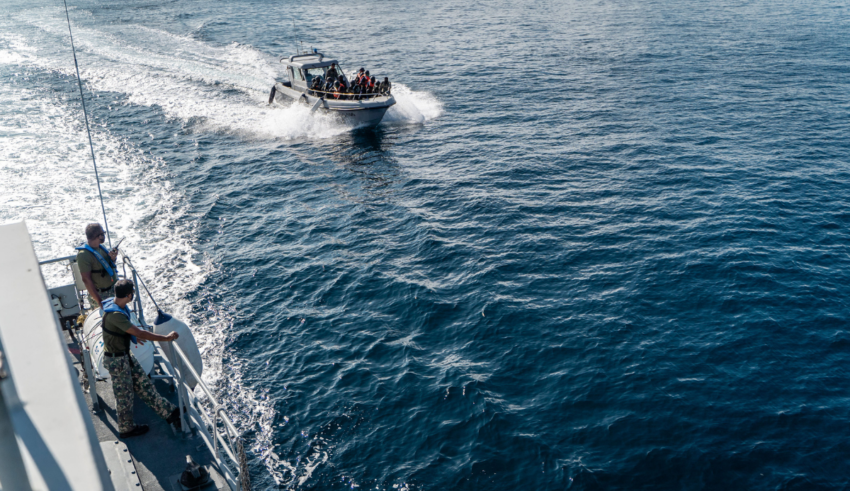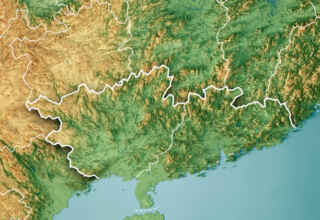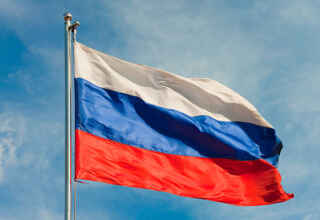
“Blue economy” is an economic term related to the marine environment and correlated economic activities; in particular, with “Blue economy”, reference is made to the preservation, regeneration, and exploitation of the marine environment. As a matter of facts, the term “blue economy” is more and more being implied by International and Regional Organizations when referring to sustainable development approaches to activities such as: fisheries, aquaculture, maritime transport, renewable energy, seabed mining, bioprospecting, and tourism related activities as well. In particular, the United Nations (UN) define the “blue economy” as an economy that comprises a variety of economic fields and related laws that collectively govern the sustainability of the use of ocean resources. Understanding and better managing the numerous facets of marine sustainability, from sustainable fisheries to ecosystem health to pollution prevention, is a significant problem for the blue economy. Moreover, the blue economy forces us to acknowledge that international cooperation across sectors and boundaries as well as new types of partnerships will be necessary for the sustainable management of ocean resources. This is a difficult task, especially for Least Developed Countries (LDCs) and Small Island Developing States (SIDS), which have many restrictions (1).
However, many mentioned blue economy-related activities are progressively interconnected with crime, corruption and maritime’s environment insecurity. Notwithstanding, that health, jobs, and recreation that oceans provide are under menaces due to human-related activities, such as oceans exploitation, severe pollution, and intensive fishing activities. Moreover, according to the UN, crimes that affect coastal and marine environments have severe repercussions over ecosystem resilience and biodiversity loss, which are leading to a dearth of natural resources (2). To counter this, the international community is trying to adopt strategies through Panels held within International Organizations. In particular, the Oceans Conferences promoted by the United Nations, attempt to promote action to advance creative, science-based solutions for ocean management. The Conferences’ aim is to urge countries for the adoption of solutions to problems like halting water pollution, illicit fishing, protecting marine habitats, and preserving biodiversity.
While, as mentioned, the international community, particularly through the aforementioned UN Panels, is trying to create strategic solutions aimed at making the blue economy truly sustainable, further specifics need to be made. In point of fact, crimes related to the blue economy do not only have to do with the outlaw activities that destroy the marine environment due to its intensive exploitation; but there are a whole other set of crimes to be considered as they are perpetrated not only to the detriment of the oceans, but to the detriment of the economy and humanity as a whole, as they contribute to feeding powerful criminal networks.
As a matter of fact, international shipping and the transportation of products are the two main targets of the so-called “crimes against mobility”. Criminal activity occurs near the water or in its proximity, such as in port facilities. Acts of piracy in all of its manifestations are the primary types of crime mentioned in this category. According to Article 101 of the UN Convention on the Law of the Sea (3), perpetrators commit acts of violence or detention, or acts of depredation, for private gain. Such acts are conducted by the crew or passengers of a private ship or a private aircraft and directed on the high seas against another ship or aircraft. Moreover, activities in which the sea is used primarily as a transit point for criminal activity, rather than as the main location of such activity itself, are a second major category of maritime crime. Crimes in this category are associated with criminal flows or what are sometimes called ‘transit crimes’: that is, they are concerned with the transport of illicit goods. It is also possible to evade detection, entry control, customs checks, taxation, or any other form of regulation by unlawfully moving people out of the source location and into their markets or destinations. The sea is suitable for such movements, since it connects the various regions of the world without having to intervene in hard borders, customs posts, checkpoints and so on. There are often difficulties in effective monitoring, especially where illicit flows may occur. The high seas are also subject to looser and more ambiguous systems of legal regulation than many territories under the responsibility for each State, reducing the risk of being captured and prosecuted for trafficking activities.
Overall, and even though the various activities are diverse, the idea is to look at convergences, synergies, and connections so as to get a good understanding of blue crime. The further link between blue crime and the overall maritime safety environment needs to be highlighted. In point of fact, the blue crime covers issues such as conflict, instability, and weakness in the State, but it is notable as well that these relate to themes such as geopolitics or terrorism. This can range from security-based actions, legislation enforcement and criminal justice measures, harm reduction strategies or responses aimed at addressing the root causes of crime, economic development, or capacity building activities.
In countering such illegal activities, UNODC and Interpol have emerged as two of the biggest International Organizations regarding the blue crime. A large part of the international response to blue crimes would have to be reorganizing these governance structures, as well as addressing institutional fragmentation both regionally and globally (4). In such a way, more effective responses could be made to crimes related to such activities. In addition, the International Organizations mentioned above should implement effective strategies to prevent the crimes outlined above by providing funds that are able to support crime prevention activities. Finally, UN Panels among countries should be opportunities for the international community to develop effective tactics to protect and develop a sustainable blue economy.
References:
- https://unric.org/en/blue-economy-oceans-as-the-next-great-economic-frontier/
- https://www.unodc.org/unodc/en/frontpage/2022/August/crime–corruption–maritime-insecurity-and-the-environment_-why-a-criminal-justice-approach-is-necessary-to-protect-our-oceans.html
- https://www.un.org/depts/los/convention_agreements/texts/unclos/unclos_e.pdf
- https://reader.elsevier.com/reader/sd/pii/S0308597X20300270?token=ACADB54905C79DB352ECBD244A1E41CFAF6E6980220571E7A3036F2C1694CC25CA8B507E46F0BA9D74DE9D05F849AF08&originRegion=eu-west-1&originCreation=20230514110415
By The European Institute for International Law and International Relations.












